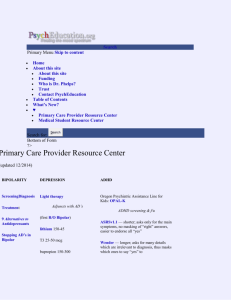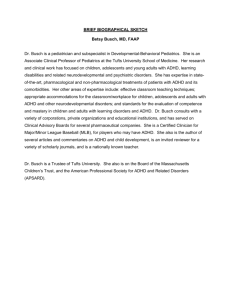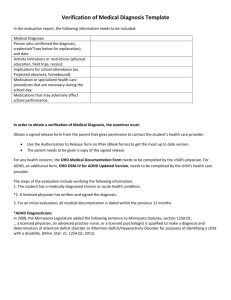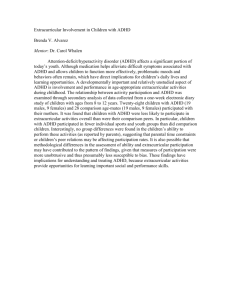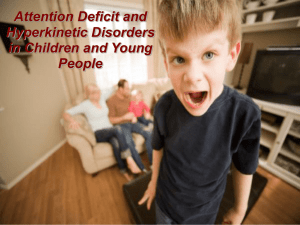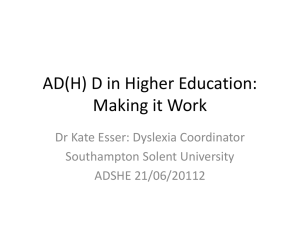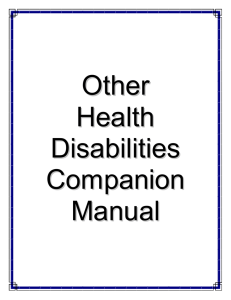Understanding Other Health Disabilities
advertisement
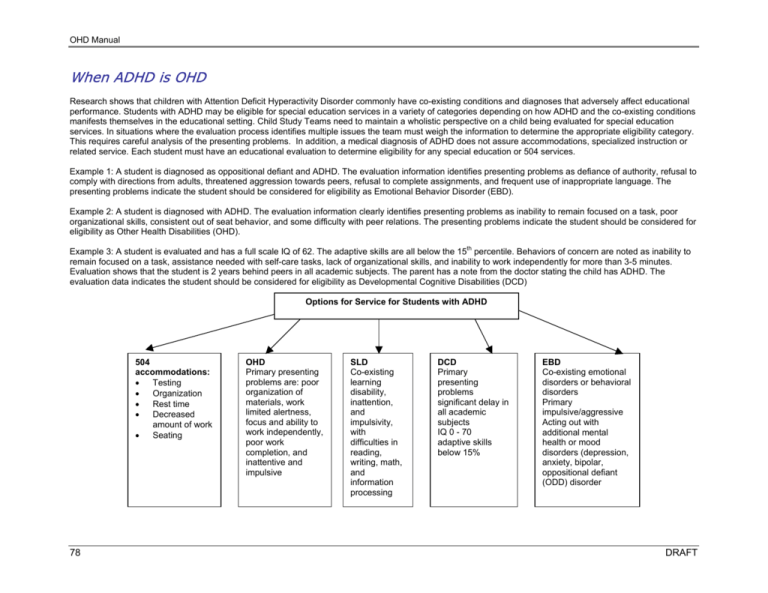
OHD Manual When ADHD is OHD Research shows that children with Attention Deficit Hyperactivity Disorder commonly have co-existing conditions and diagnoses that adversely affect educational performance. Students with ADHD may be eligible for special education services in a variety of categories depending on how ADHD and the co-existing conditions manifests themselves in the educational setting. Child Study Teams need to maintain a wholistic perspective on a child being evaluated for special education services. In situations where the evaluation process identifies multiple issues the team must weigh the information to determine the appropriate eligibility category. This requires careful analysis of the presenting problems. In addition, a medical diagnosis of ADHD does not assure accommodations, specialized instruction or related service. Each student must have an educational evaluation to determine eligibility for any special education or 504 services. Example 1: A student is diagnosed as oppositional defiant and ADHD. The evaluation information identifies presenting problems as defiance of authority, refusal to comply with directions from adults, threatened aggression towards peers, refusal to complete assignments, and frequent use of inappropriate language. The presenting problems indicate the student should be considered for eligibility as Emotional Behavior Disorder (EBD). Example 2: A student is diagnosed with ADHD. The evaluation information clearly identifies presenting problems as inability to remain focused on a task, poor organizational skills, consistent out of seat behavior, and some difficulty with peer relations. The presenting problems indicate the student should be considered for eligibility as Other Health Disabilities (OHD). th Example 3: A student is evaluated and has a full scale IQ of 62. The adaptive skills are all below the 15 percentile. Behaviors of concern are noted as inability to remain focused on a task, assistance needed with self-care tasks, lack of organizational skills, and inability to work independently for more than 3-5 minutes. Evaluation shows that the student is 2 years behind peers in all academic subjects. The parent has a note from the doctor stating the child has ADHD. The evaluation data indicates the student should be considered for eligibility as Developmental Cognitive Disabilities (DCD) Options for Service for Students with ADHD 504 accommodations: • Testing • Organization • Rest time • Decreased amount of work • Seating 78 OHD Primary presenting problems are: poor organization of materials, work limited alertness, focus and ability to work independently, poor work completion, and inattentive and impulsive SLD Co-existing learning disability, inattention, and impulsivity, with difficulties in reading, writing, math, and information processing DCD Primary presenting problems significant delay in all academic subjects IQ 0 - 70 adaptive skills below 15% EBD Co-existing emotional disorders or behavioral disorders Primary impulsive/aggressive Acting out with additional mental health or mood disorders (depression, anxiety, bipolar, oppositional defiant (ODD) disorder DRAFT

